No Progress In Legal Action As Iranian Journalist’s Detention Persists
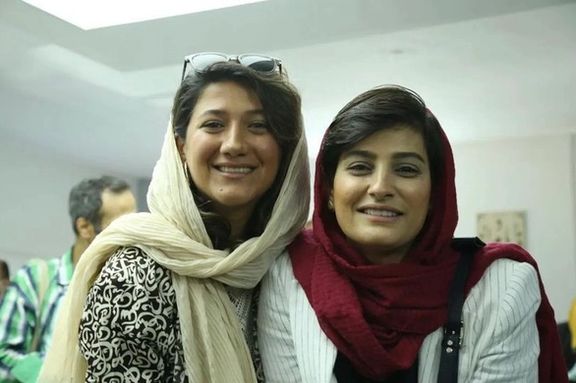
Almost a month since imprisoned Iranian journalist Niloufar Hamedi filed a complaint against Judge Abolqasem Salavati, there is still no update on the proceedings.

Almost a month since imprisoned Iranian journalist Niloufar Hamedi filed a complaint against Judge Abolqasem Salavati, there is still no update on the proceedings.
Hamedi took legal action, accusing the notorious judge of refusing to release her after a year of temporary detention. Salavati usually presides over cases against dissidents and journalists, issuing harsh sentences.
Hamedi, became famous and was arrested after she broke the news of the tragic incident involving the death of 22-year-old woman Mahsa Amini from head injuries, remains in custody alongside her colleague, Elahe Mohammadi, for over a year. Mohammadi was detained while covering Amini's funeral in Saqqez cemetery, Kordestan province.
Both Hamadi and Mohammadi, former correspondents for Iran's prestigious reformist newspaper, Shargh, and Ham-Mihan, respectively, have emerged as symbols of protest following Amini's death.
Expressing uncertainty about the status of the complaint, Hamadi's husband, Mohammad Hossein Ajorlou, stated, "We have no information about the consideration of the complaint, but Niloufar's illegal temporary detention continues after 444 days."
Despite widespread calls in Iran and abroad for freedom of expression and the release of the journalists, the Iranian judiciary exhibits reluctance in issuing bail and temporary release orders.
Iran continues to maintain a dismal ranking among the world's least free countries for press freedom. The situation has worsened since the initiation of the Women, Life, Freedom movement last year, resulting in numerous journalists being arrested and imprisoned.

Iranian dissident rapper Toomaj Salehi's life is “at risk” in prison and he may be a “target for assassination”, according to his social media account.
Salehi's official account on X reported on Friday afternoon that he is being kept in an area in Esfahan Prison where criminals, including those facing charges for dangerous crimes, are being held without following the principle of “segregation of criminals” by type of crime.
"Intentionally" and "with a prior conspiracy", physical clashes between inmates have occurred in the past few days, the social media account reported. A tense and stressful environment has been created to subject Toomaj to psychological torture and possibly murder plans, the account added.
Salehi, 33, was rearrested on November 30 less than two weeks after he was released on bail following his detention for supporting the nationwide protests last year. It was reported that the recent arrest had involved severe physical abuse, with officers purportedly using pistols and AK-47 rifles butts.
According to Mizanonline, an a website affiliated with Iran's notorious Judiciary, Salehi was rearrested for “spreading lies and the agitating public opinion.”
Salehi gained fame for his protest songs which addressed social issues and government injustices in Iran. His initial arrest, which involved more than a year of incarceration, including 252 days in solitary confinement, was part of a wider crackdown on political opponents following Mahsa Amini's death in morality police custody.
In October Toomaj Salehi was awarded the 2023 Arts Freedom of Expression Award by Index on Censorship, an organization promoting free expression.
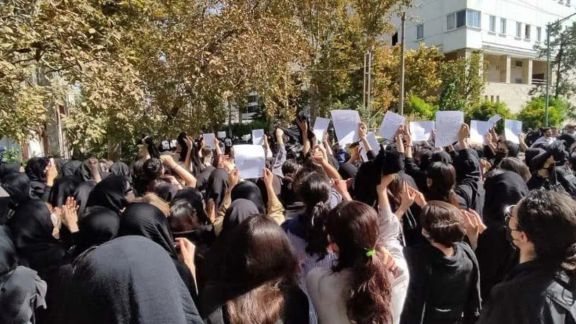
In Student Day statements, Iranian student groups have criticized the government for suppressive methods in universities and vowed not to give up their fight for freedom.
Describing the present time as "one of the most suffocating eras for universities in Iranian history," a group of students from Tarbiat Modarres University, a graduate school based in Tehran, emphasized that despite their university being traditionally associated with the education of higher officials and managers of the Islamic regime, its students actively participated in the Woman, Life, Freedom movement.
As a result of their involvement, the students stated that intelligence and security forces have intensified efforts to intimidate and eliminate nonconformist students and professors at their university.
Student Day, which usually falls on December 7, marks the anniversary of a student protest in 1953 against the visit of then-US Vice President Richard Nixon during which three Tehran University students were killed by the police.
Hundreds of university students were arrested across Iran during the protests that followed the death of Mahsa (Jina) Amini in the custody of morality police in late September last year. For months students in various universities held protest rallies inside universities and in some instances, they were supported by their professors and other faculty members.
In the past year, intelligence and security forces have made every effort to bring students and universities, some of which were scenes of extensive protests for months during the Woman, Life, Freedom movement, under control. Students and professors are still called in by intelligence organs and interrogated and often forced to pledge that they will not participate in any protests.
Student sources say authorities have banned hundreds of students in different universities from studying this academic year for taking part in protests and expelled tens of professors for opposing the crackdown on students during anti-government protests.
The crackdown on universities after the Woman, Life, Freedom movement and the recent purge of academia seems even harsher than the Cultural Revolution in the early 1980s, Mahdieh Golrou, a former student activist told Iran International TV.
In 1980, soon after the victory of the Islamic Revolution, the new government’s Cultural Revolutionary Headquarters shut down universities for three years to purge the academia of what it saw as secular professors, who could potentially challenge the clerical ideology. The new regime wanted to enforce its own Islamic revolutionary ideology (Islamification) in higher education establishments. During this period, thousands of professors and students were purged for various reasons, including political inclinations and western influences.
Students of Tarbiat Modarres University said in their statement that they would not leave and surrender their university to totalitarians. “We will fight for the smallest of opportunities to breath and to resist and use them against Islamic totalitarians to reach a humane, free and equal society,” they added.
Student groups in other universities have issued similar statements.
Iran's supreme leader, Ali Khamenei, usually meets with students on Student Day and delivers a speech but this year no meeting or speech was reported.
Some other officials -- including President Ebrahim Raisi, Parliament Speaker Mohammad-Bagher Ghalibaf, and Chief Justice Gholamhossein Mohseni-Ejei -- visited universities and met with pro-government students, not on Student Day but up to three days earlier in ceremonies that appeared to be very low-key in comparison with previous years.
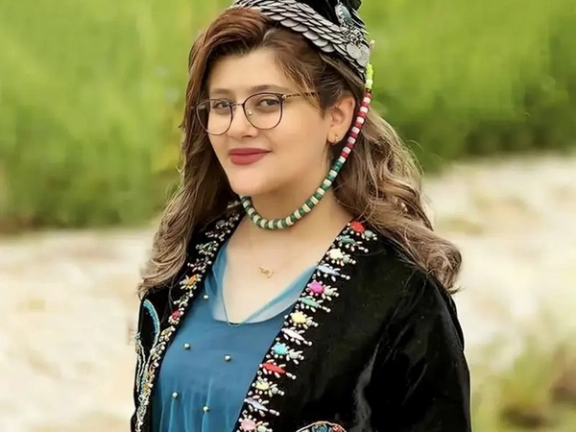
The family of Mahsa Amini, set to receive the Sakharov Prize from the European Union, were not allowed to leave Iran for France for the award ceremony.
Mahsa Amini, a 22-year-old woman, was apprehended by Iran's morality or hijab police on the street in mid-September 2022. Within hours, she was transported to the hospital with critical head injuries, ultimately succumbing to the trauma three days later. The incident swiftly ignited widespread protests across the nation.
Mahsa Amini's father, mother, and brother were informed at Imam Khomeini Airport that they were prohibited from leaving the country, and their passports were confiscated.
The European Union had announced on October 19 that Mahsa Amini, along with the Women, Life, Freedom movement, would be honored with the prestigious Sakharov Prize.
The Amini family has been under intense pressures from security forces since Mahsa's death. similar to intimidation and gag orders enforced by Iranian intelligence against other families whose young members were killed by the government.
On the anniversary of Amini's killing, her father was temporarily detained on September 16 by security forces for intimidation purposes. Following threats and warnings, he was eventually released. Reports from social media and local Kurdish sources suggested that Amjad Amini, Mahsa's father, faced restrictions on leaving his house for a certain period.
Amjad Amini and his wife, Mojgan Eftekhari, had earlier called for a gathering to commemorate the anniversary of Mahsa’s death at her gravesite in a cemetery in Saqqez, west of Iran.
Iran International received information that Amjad Amini was summoned multiple times by the Saqqez Intelligence Office after announcing the ceremony marking his daughter's death, undergoing hours of interrogation.

Johan Floderus, a 33-year-old Swedish citizen and EU diplomat, has been held captive in Iran for the past 18 months, prompting his family to speak out about the severe conditions he faces.
With no routine consular visits or phone calls during his 600 days of detention in Tehran's Evin prison, Johan has resorted to hunger strikes at least five times, as revealed by his father, Matts Floderus.
Matts detailed the dire circumstances Johan is enduring in an interview with The Guardian. According to him, Johan is confined to a cell without a bed and compelled to sleep under constant lighting. Routine access to phone calls, books, and essential food supplements has been consistently denied.
Expressing the family's distress, Matts shared his wife's hope for Johan's release in time for Christmas, highlighting the devastating impact of the situation on their lives. He emphasized Johan's arbitrary detention, stating that he has committed no wrongdoing and should be released to leave the country.
He said the Iranians had “taken Johan for no reason” and “should ensure he has full human rights while there and they should release him and let him leave the country right away”.
Iran routinely arrests foreigners and dual citizens to use them as bargaining chips against Western countries. The United States released $6 billion of Iran's blocked funds this year to free five hostages.
Johan, an alumnus of Oxford, previously worked on the Afghanistan desk of the EU’s external services department. He was detained on April 17, 2022, in what seems to be a deliberate strategy by Iranian authorities, possibly aimed at leveraging his release against Iranian prisoners in the West or extracting financial concessions.
Johan's family awaits an imminent court hearing in December to learn of the charges against him.
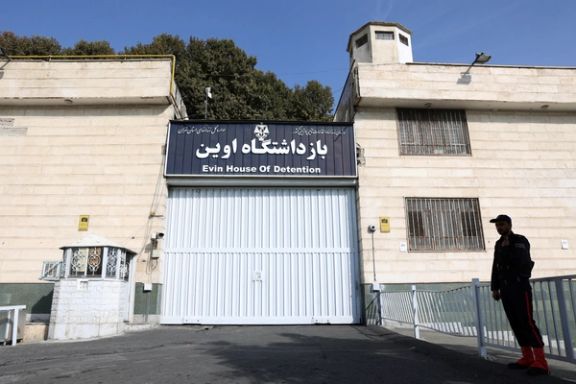
The Campaign to Free Political Prisoners in Iran (CFPPI) says use of pharmacological torture against political prisoners has increased alarmingly in the past year.
The Canada-based non-profit has urged the international community to investigate this type of torture and deaths resulting from it in Iran. “The Islamic regime in Iran must be held accountable for its crimes against political prisoners,” a recent report by CFPPI, said.
Pharmacological torture is the use of psychoactive, psychotropic drugs or other types of drugs to punish, extract information, or to subdue prisoners into compliance by causing distress in the form of pain, anxiety, panic, psychological disturbances, immobilization, hallucination, paranoia, disorientation, and addiction without leaving obvious physical signs of violence.
CFPPI has said in its report that it conducted extensive investigations that indicated an alarming increase in the use of pharmacological torture in Iran in the past five year and particularly since Women, Life, Freedom protests that began in late September 2022. Their findings draw on testimonies of those arrested during the protests of 2022-2023 as well as on the accounts of former political prisoners.
According to CFPPI's report, the regime has intentionally and systematically subjected more political prisoners to pharmacological torture by sending detainees to mental hospitals and forcibly administering anti-psychotic drugs at multiple prisons across the country, as well as by mixing drugs into their food and drinks.
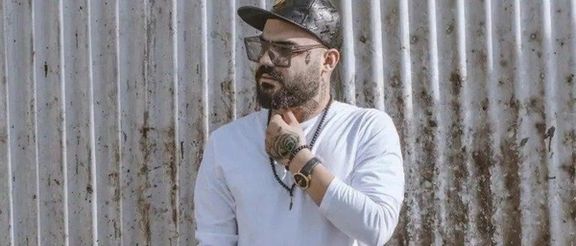
“Whereas formerly, prison guards would offer sedatives to prisoners, which many of the younger and newer prisoners voluntarily accepted to ease their experience, new reports suggest that since September 2022 the practice has changed to violent and coercive administering of unwanted drugs,” the report said.
One of the victims interviewed for the report, a 27-year-old woman who said she had been raped several times during her detention, told CFPPI that she was forced into taking unidentified pills which had a profound impact on her, leading to psychotic episodes. After her release from prison, she attempted to take her own life and lost one of her kidneys.
Prisoners say they have also noted serious pains and aches in the absence of the drugs.
Dissident rapper Saman Seydi (Yasin) is among political prisoners who have spoken up about their tortures including administration of unidentified pills and injections at a very high cost. He has been sentenced to death and is still in prison.
Yasin was held at a mental hospital on the orders of the notorious judge Abolghasem Salavati for four days as punishment for smuggling out an audio file from Tehran’s Evin Prison in which he described tortures including being subjected to mock execution.
At the mental hospital where he was tied to the bed, security forces beat him for refusing to allow them to inject him with an unknown substance. Yasin claims he fell unconscious for 24 hours after the injection and has been having problems with his eyesight and balance since then.
Yasin’s torturers, he says, wanted to force him to “confess” to possession and use of a firearm during last year’s protests.
In several other cases in the past year, detainees including young protesters have died soon after their release from prison under suspicious circumstances.
Pressure on victims’ families to accept “suicide”, “sudden death”, or “overdose” as cause of death of individuals with no prior record of major health problems, depression or addiction has raised suspicions that the deaths may have resulted from pharmacological torture.
“Pharmacological torture is extremely distressing and punitive as it causes severe physical pain, harmful and painful physiological changes, confusion, perceptual abnormalities, fearfulness and anxiety, lethargy, and loss of personal agency,” William Hopkins, Consultant Psychiatrist at Freedom from Torture who has worked to rehabilitate survivors of pharmacological torture from various countries is quoted by the report as saying.